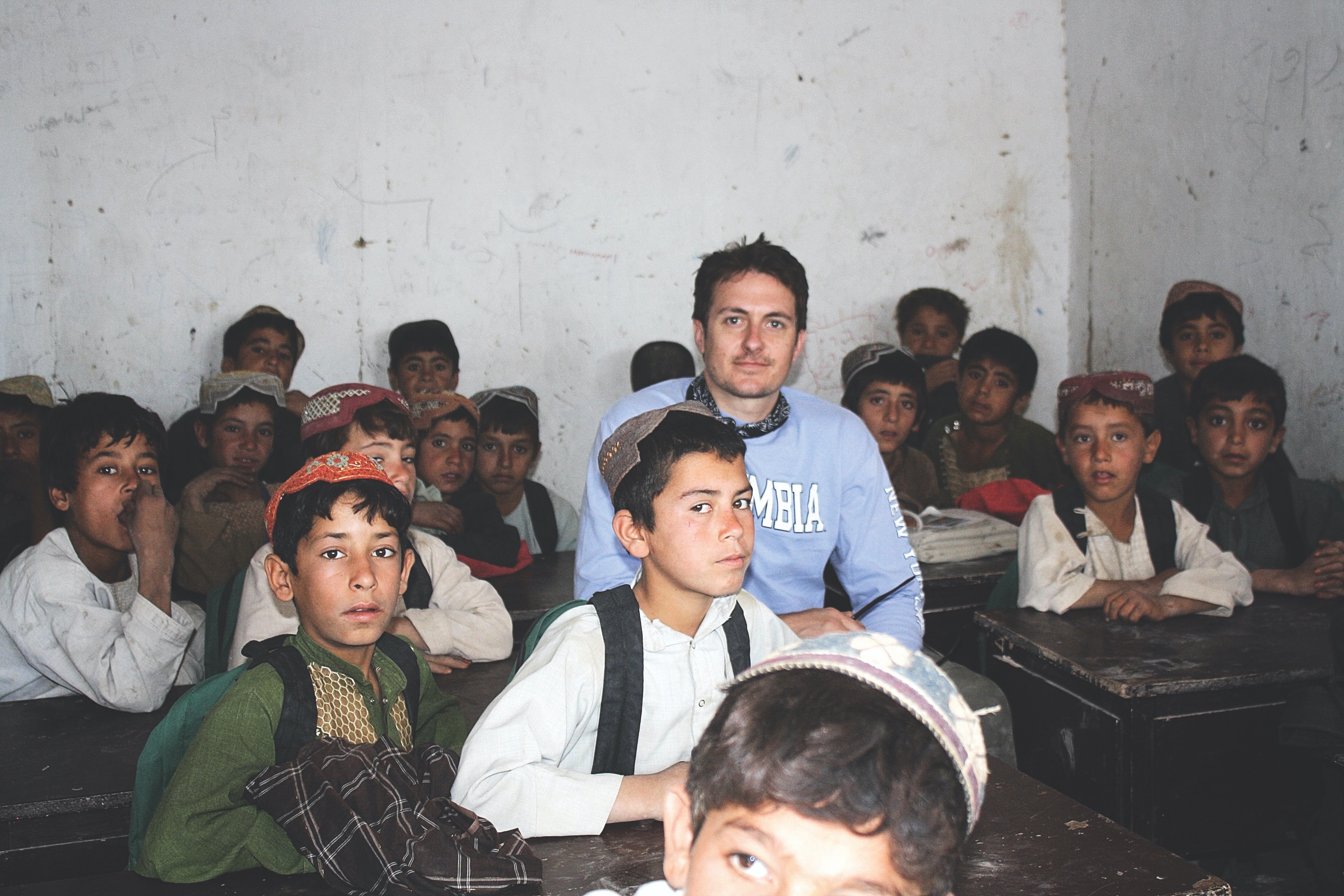A former U.S. Marine, Assistant Professor of Journalism Alex Luchsinger reflects on his time covering the war in Afghanistan as a reporter and the recent withdrawal of American troops from the country.
When I saw the images of afghans chasing planes, desperately clinging to wings and wedging themselves in landing gears — many plunging to their deaths — it conjured thoughts of my reporting trip to Afghanistan in 2011. The fevered desperation of the Afghan people was as palpable in 2011 as it appears now and serves as a tragic, full-circle flashback to the innocent Americans jumping from the World Trade Center two decades ago, the event that precipitated it all.
When our plane descended into the Kabul airport in 2011, the dazzling beauty of the striated mountains surrounding the tarmac gave way to the reality of entering a war zone. Old memories and mounting anxiety washed over me as we made our way through the barren airport. I was five years out of the Marine Corps, where I served in Iraq in 2005. My colleague and I were alone now, hailing a taxi outside the airport, just a pair of Westerners in a sea of Afghans, eager to shed light on a forgotten war.
We arrived at the International Security Assistance Forces headquarters to abandoned machine gun positions still smoldering from an intense firefight. After being spirited into relative safety behind barriers, we linked up with personnel who assigned us to embed with troops in Garmsir, a small district situated in the south in Helmand Province.
En route, I ran into four Marines with whom I previously served. One, a gunnery sergeant on his fifth tour, told me of his recent divorce and how the strain of the relentless deployment tempo became too much for his wife and family, another casualty of the wars in Iraq and Afghanistan.
We arrived at our remote forward operating base in Garmsir at dusk on an Osprey, an aircraft notorious for mechanical failures but capable of making tactical vertical landings and takeoffs like a helicopter. Our brief by the commanding officer was quick and austere: The day before, a Marine left the compound to retrieve a bottle and was killed by an improvised explosive device as his peers looked on from a rifle tower.
Tiny outposts dotted one of the only roads in and out of Garmsir; many bases had no running water or sanitation. Malnourished and exhausted, Marines told me of bartering goods at local markets in exchange for fresh fruits and vegetables. Taliban intimidation abounded as we patrolled surrounding areas, but the Marines’ morale was still high—and they were so young, many born shortly before the start of the war.
I nearly wept when we arrived at a school that recently opened after being shuttered for six years by the Taliban. The Afghan military manned a rifle tower while children filed into the compound, its classrooms nothing more than a concrete space with secondhand desks. I met teenagers there, just 18, who told me they were sixth graders because they had not been to school since they were 12 years old. I asked if they knew about 9/11 or Osama bin Laden; their vacant looks confirmed what I suspected. I knew then the American mission in Afghanistan had run past its expiration date.
The hasty withdrawal from Afghanistan is reminiscent of the rush to invade in 2001. Little was known about the country, particularly the centuries-old tribal strife and years of corrupt leadership, let alone a dearth of command of the languages spoken there.
Afghanistan, under Taliban rule, underscores historic attempts to change entrenched ways, and until Afghans, should they desire, come together to shape their future, the Taliban will reinstitute its draconian grip on the country. It is a blow to progress on women’s rights, education and human rights.
It is time to leave Afghanistan and to many, including me, we must now live with its aftermath and the unnecessary deaths of Afghans and American service members who stepped up so the majority did not have to.
Alex Luchsinger is an assistant professor of journalism at Elon University and continues to work as a journalist and documentary filmmaker. He served as a U.S. Marine from 2002-06 and received the Purple Heart.



